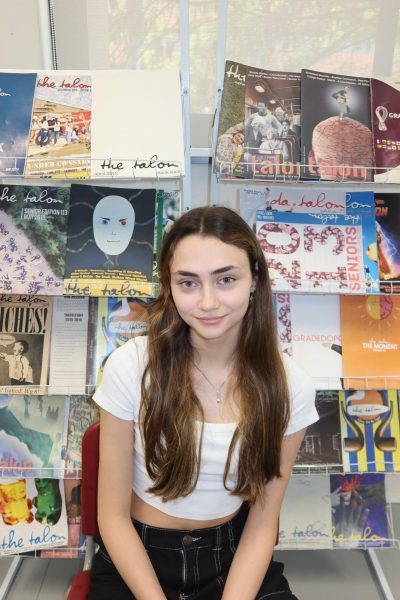Mikail Gorbachev Dies at 91; will his legacy die with him?

https://pixabay.com/illustrations/search/mikhail%20gorbachev/
At 91 years old, the ex-president of the Soviet Union, Mikhail Gorbachev, died on August 30th of what has been reported to be a result of a “long grave illness”. Other than in Russia, where he is blamed for the collapse of the Soviet Union due to his inability to resuscitate the falling state through radical reforms, Gorbachev, who presided over the Soviet state from 1985 to 1991, was the only president of the communist regime whose legacy is widely respected worldwide. To the world he is the courageous leader who ended the Cold War in 1991 and put down the Berlin Wall two years before, earning him a Nobel peace prize in 1990. So, the question lingers, will his legacy die with him?
In 1985, Gorbachev inherited the Soviet state in economic disarray, prompting him to set in motion reforms with hopes of achieving “perestroika” (resurrection) and “glasnost” (openness). In the perestroika reform, the government’s hold on businesses loosened, allowing private initiatives to arise independently of the communist ideologies which shaped the Soviet Union. Still, in the glasnost reform, soviet citizens were guaranteed freedoms: the freedom of the press, the abolition of book burnings and the secret police, and the establishment of open elections. Gorbachev also believed that for the Soviet economy to flourish, they would need to improve foreign relations, especially with the United States. As such, Russian troops were removed from Afghanistan to prove their peaceful stance in the arms race, and reduce Soviet presence in Europe. After the fall of the Berlin Wall, which brought the Iron Curtain down and ended the Cold War, Russia was opened to the rest of the world. Gorbachev’s reforms seemed to drive the soviet state away from its communist roots. In the end, the continuous internal disarray, along with movements of independence in the Soviet Baltic states and the rise of Boris Yeltsin (a member of the communist party who led Gorbachev to resign), led to the end of the Soviet Union.
To those who feared nuclear conflict, the fall of the Soviet Union was a great relief. Yet, to current Russian president Vladimir Putin, and his fellow KGB (Komitet Gosudarstvennoy Bezopasnosti, the foreign intelligence and domestic security service back in the Soviet Union) veterans, the event was “the greatest geopolitical catastrophe of the 20th century”. In particular, Gorbachev is characterized negatively and regarded with shame for allowing this to happen. This can be seen as one of the earliest signs of a strained relationship between Putin and the ex-president.
This weary relationship is evident when comparing how Putin treated Gorbachev to the treatment of his predecessor, Boris Yeltsin. When Yeltsin died in 2007, there was a national day of mourning, followed by a state-organized funeral. But now, although Putin provided his deepest condolences for the loss of Gorbachev, he didn’t attend the funeral for he claims to have been experiencing a “full work day”.
Ironically enough, this tension was also present between Gorbachev and Yeltsin (who took charge of the coup that caused Gorbachev’s resignation), which aided in the fall of the Soviet Union. According to journalist Vladimir Pozner. Not only did Gorbachev resign due to Yeltsin, but Yeltsin felt overshadowed by the respected worldly leader. “As long as there was the Soviet Union, there was a President Gorbachev”, claims Pozner, inferring that once the change in power occurred, it officialized the changed nation.
Looking back from the present day, the past seems to be an alternate reality, where such divisions between nations seem impossible. How could it be that mere 3 decades ago a wall divided Germany and the world between its East and West factions? However, a harsher question lies beneath these thoughts. What did it take for humanity to change in such a short period of time? Gorbachev’s death highlights this “impossible” process that aided in attempting to unite nations. When looking out to the world from Graded, being an international community, uniting legacies must be recognized, as many Graded families must’ve once been impacted by them.
Gorbachev was a memorable leader in Russian history: changing the direction of a fallen state and opening the East towards the West after the Cold War. Due to his contributions to East European politics, and focus on negotiations rather than confrontations with the West was awarded the Nobel Peace Prize in 1990. However, with the outbreak of war in Ukraine, Gorbachev claimed his “his life’s work” was being undermined. Putin’s determined military operations in the formerly Soviet State, have widely been considered to be efforts to reverse the “catastrophic” collapse Gorbachev failed to prevent. Most likely, the West’s political and economic sanctions will increase tension in U.S. and neighboring NATO countries with Russia, threatening the rise of greater-scale European conflict dividing the East and the West. The cultural and geographical void abridged by Gorbachev while he served in office seems to be growing once again. Looking back at a mythical past, Russian leaders place Gorbachev’s legacy at risk. Now, the past seems closer than ever.
Works Cited:
https://www.nytimes.com/2022/08/30/world/europe/mikhail-gorbachev-dead.html
https://www.bbc.com/news/uk-62732447
https://www.history.com/topics/cold-war/perestroika-and-glasnost
https://www.history.com/topics/cold-war/fall-of-soviet-union
https://www.cfr.org/global-conflict-tracker/conflict/conflict-ukraine

Rebecca (with two ‘c’s please!), a senior, is delighted to be part of The Talon team this year as the news editor! The avid ballerina, whose life is...








